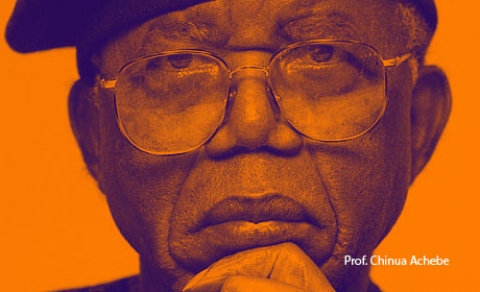Every nation, country, community has had occasions to celebrate people who have left their marks on the sand of time.
They are admired by their bravery, courage, spectacular achievements and good deeds, leaving a lasting legacy.
For instance, Julius Caesar, Abraham Lincoln, Usman Dan Fodio, Queen Amina of Zazzau, Sir Ahmadu Bello, Chief Nnamdi Azikiwe and Chief Obafemi Awolowo, among others, have been on many occasions remembered for what they stood for and their contributions to the society.
Observers note that there are also people in the society currently who are in most cases ideals of the aspirations of their society and who deserve honours.
In remembrance of Nigeria’s literary giants, especially from northern part of Nigeria, the Department of Nigerian Languages and Linguistics of Kaduna State University recently organised an international conference to celebrate Nigeria’s heroes and heroines in that regard.
The Head of the Languages and Linguistics Department, Prof. Ibrahim Malumfashi, explained that the conference was organised to recognise people who had contributed immensely to the literary development of the country.
Malumfashi added that the conference sought to highlight the courage, hard work, bravery and sacrifices exhibited by such people to inspire current generation to develop commitment to national development.
Dr Bukar Usman, the president of an Abuja-based non-governmental organisation, Bukar Usman Foundation, lauded the initiative, stressing that the efforts would encourage good deeds for national development.
“The beauty in mentioning names and celebrating their deeds is to share with humanity those qualities worthy of emulation to make society better for the generality of the people.
He said that a survey of characteristics and qualities of heroism revealed emphasis on spectacular achievements of interminable relevance and inspiration.
“Such qualities include divine ancestry, courage, strength, bravery, bold exploits, honesty, favour, nobility, champion, genius, super human, conqueror, idol, star and demonstrative patriotism, among others.
“All these are qualities needed to be exhibited by all Nigerians to help build a better Nigeria as was the case in no distant past,’’ Usman said.
“Although ordinary persons who toil day and night and contribute to the society unfortunately still remain unsung and unrecorded, anyone whose action impacted positively on society must be recognised,’’ he said.
Prof. Isma’il Junaidu, Executive Secretary, Nigeria Educational Research and Development Council, who was the chairman of the occasion, commended the Department of Nigerian Languages and Linguistics of the university for the Initiative.
Junaidu said that celebrating heroism would spur the society to imbibe noble characters of men and women who spent their lives contributing to the development of their communities.
Similarly, Prof. Ahmed Yerima, Dean of Humanities, Redeemers University Ilorin, Ilorin, described true northern heroes of literature as writers that worked hard to make significant impact on the northern part of Nigeria.
“They include those whose works document and portray the essence of northern Nigeria’s rich cultural heritage; those whose works contribute to the development of significant milestone in the central historical discourse of northern literature.
“They are, among others, Usman Dan Fodio, a pious Muslim teacher, religious leader, writer and Islamic promoter, Asma’u Nana, Dan Fodio’s daughter; who wrote jihadist poetry in Arabic, Fulfulde and Hausa’’.
“Abubakar Imam was another hero who wrote a collection of stories, which emerged from the rich Hausa culture with the flavour of Arabic Muslim culture.
“Abubakar Gimba and Zainab Alkali are other writers whose ability goes beyond the boundaries of Islam.
“They retained their native Hausa culture and yet embraced western education, thus making them significant writers that command the attention of the world.
“The lists are endless. Their contribution in literary works had remained relevant to generations of Hausa readers yet unborn,’’ he said.
Yerima described them as true heroes and heroines of literature in Hausa land, adding that they needed to be celebrated and emulated.
Sharing similar sentiments, Prof. Hamza Maishanu, of the Department of History, Usman Danfodio University Sokoto said that the scholarly contribution of Usman Dan Fodio, Andullahi Fodio and Mohammed Bello, had been so great that academicians made a career out of their works.
Maishanu explained that the trio was responsible for the Jihad movement that led to massive transformation of Northern Nigeria in the 19th century and whose scholarship inspired many Nigerian intellectuals.
“They wrote on all the known Islamic science including Fiqh, Hadith, Tawhid, Tasawwuf, Sirah Tafsir, medicine, administration and politics, among others.
“On Arabic language, they wrote on grammar, prosody, rhyme and philology in addition to scholarly works in Fulfulde and Hausa.
“The impact of their intellectual output could be seen in our traditional Islamic schools where they are still being used as major source of learning materials.
“Our institutions of learning and research centres are today repositories of hundreds of these works and even for utilitarian value.
“ Their intellectual labour could be seen in numerous degree works, in fact, many of us at home and abroad had made a career out of their labour,’’ he said.
He added that the scholarship they bequeathed to scholars and humanity was among the lasting and enduring legacy they left behind.
In his speech, the Vice-Chancellor of Kaduna State University, Prof. William Qurix, said that university communities and indeed government at all levels had a duty of making public the contributions of these great men and women.
“The university would continue to conduct research, seminars, lectures and conferences to inspire the populace towards nation building,’’ Qurix said.
Participants at the occasion, nonetheless, observe that patriotism will thrive when good deeds attract recognition and rewards.



Leave a Reply